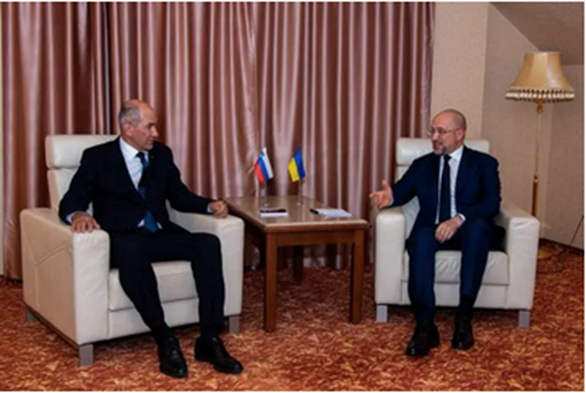Slovenia has taken the initiative to collect all available Starlink satellite internet stations in the European Union, with the goal of sending them all to Ukraine. It is expected that there will be up to 5,000 of them. On Twitter, Prime Minister of the Ukrainian government, Denys Shmyhal, thanked Slovenian Prime Minister Janez Janša for his initiative and assistance to Ukraine. Starlink is a satellite internet constellation operated by Elon Musk’s SpaceX company, which provides satellite internet access coverage to most of the Earth.
A few days ago, Ukraine also asked the SpaceX CEO, billionaire Elon Musk for help, and last Monday, they announced that they had received the donated satellite internet terminals. Deputy Prime Minister of Ukraine, Mykhailo Fedorov, thanked Musk. Musk then said that Starlink now also operates in Ukraine, and he has also sent terminals there, which are necessary to access Starlink’s service. This is supposed to ensure that the Russians will no longer be able to prevent Ukrainians from communicating with the world by sabotaging the telecommunication infrastructure – namely, Starlink is a satellite internet constellation operated by Elon Musk’s SpaceX company, which also makes spacecraft.
On Twitter, the Prime Minister of the Ukrainian government, Denys Shmyhal, thanked the Slovenian Prime Minister Janez Janša for his initiative and assistance to Ukraine. The European Union will thus collect all available Starlink satellite internet stations and send them to Ukraine. According to Reuters, the terminals look like antennas for home satellite television and can provide relatively fast internet service, connecting to a fleet of satellites in the low orbit. However, John Scott-Railton, a senior researcher at the University of Toronto’s Citizen Lab project, warned that the terminals could become Russian targets: “If Vladimir Putin is controlling the air over Ukraine, the transfers of users over this connection can become beacons… for airstrikes,” he tweeted.
John Scott-Railton also noted that Russia has decades of experience with hitting people by targeting their satellite communications. According to him, in 1996, despite the caution of Chechen President Dzhokhar Dudayev, a Russian plane found his location because of a phone call and killed him with a rocket attack. One of the challenges is the installation of end-user terminals, as they require a clear view of the sky in order to connect with Starlink, said Tim Farrar, a satellite communications consultant. Because high-rise apartment buildings can block the service, one has to go to the top of the tallest building nearby to set up the antenna, he said. “And that is a pretty exposed place,” he added.
Sara Bertoncelj


